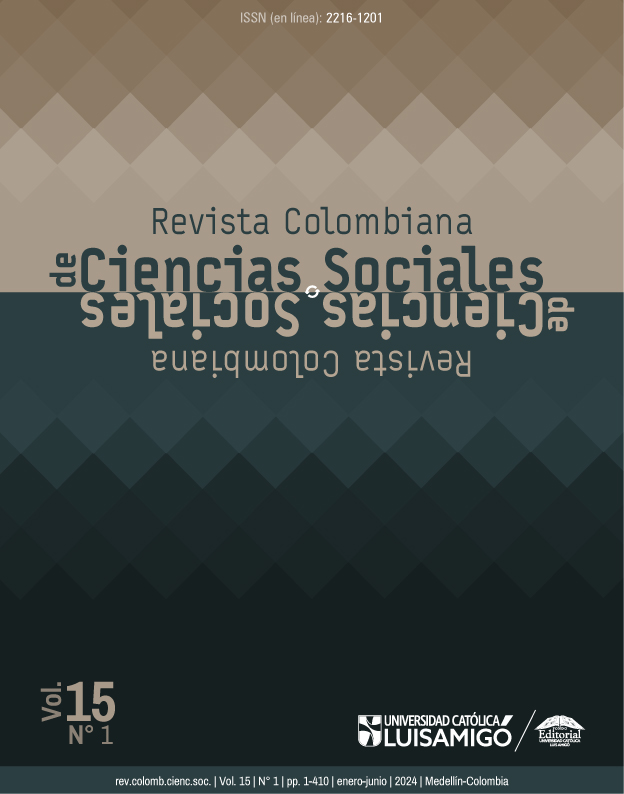Kids' perceptions on gaming experience and learning with the Nintendo Labo: Multiple “make” and “play” experiences
DOI:
https://doi.org/10.21501/22161201.4243Palabras clave:
Nintendo, Aprendizaje informal, Niños, Ciencias, Conocimiento, Maker, Jugar, Aprender, Juegos de vídeoResumen
This paper explores the perceptions of kids that had the chance to explore the “Make” and “Play” phases of the Nintendo Labo variety “Toy-Con 01”. Focusing on the roles of engagement, knowledge utilization and acquisition of new concepts. This paper broadens the general understanding of how video games can elicit active learning. Building on the experiences in constructing DIY projects, the authors analyze how the kids —through four different cases— connected their previous knowledge and experiences with science-related content (implicit in the interactions and hardware of the Nintendo Switch console and the Nintendo Labo software and cardboard pieces). The results of the study show that kids can use their cultural and academic experiences as well as their funds of knowledge to make sense or create theories and hypotheses of how the hardware and the software of the Nintendo Labo interact with each other and work. The limitations of the study suggest that more time is needed to have a more in-depth exploration of the kids’ perceptions by exploring the “Discover” phase —the third and final phase of the Nintendo Labo.
Descargas
Referencias
Arya, D., Muller, A., Cano, J., Hyun, F., Rice, M., & Christman, D. (2022). Undergraduate service learning as a context for exploring the ‘Institutional Void’ of higher education. In E. A Nemeth & A. N. Patterson (Eds), Pursuit of Liberation: Critical Service-Learning as Capacity Building for Historicized, Humanizing, and Embodied Action (pp. 147-187). Alan S. Tinkler, Missouri State University. Todd A. Price, National Louis University.
Berry, J. W. (1989). Imposed etics—emics—derived etics: The operationalization of a compelling idea. International journal of Psychology, 24(6), 721-735. https://doi.org/10.1080/00207598908247841
Brenner, M. E. (2006). Interviewing in educational research. In J. Green, G. Camilli, & P. Elmore (Eds.), Handbook of complementary methods in education research (pp. 357-370). Erlbaum.
Cano, J., & Arya, D. (2023). The Reciprocal Power of Equitable, Intergenerational Learning: Exploring Perspectives of Undergraduate Students about Engaging in a University–Community Partnership Program. Social Sciences, 12(6), 349. https://doi.org/10.3390/socsci12060349
Coombs, P. H., & Ahmed, M. (1974). Attacking rural poverty: How non-formal education can help. Johns Hopkins University Press.
Gee, J. P. (2004a). An introduction to discourse analysis: Theory and method. Routledge.
Gee, J. P. (2004b). Situated language and learning: A critique of traditional schooling. Routledge.
Gee, J. (2005). Learning by Design: Good Video Games as Learning Machines. E-Learning, 2(1), 5-16. https://doi.org/10.2304/elea.2005.2.1.5
Gee, J. (2008). Good Video Games, the Human Mind, and Good Learning. In Children’s Learning in a Digital World (pp. 40-63). Blackwell Publishing Ltd.
Hatch, M. (2013). The maker movement manifesto: Rules for innovation in the new world of crafters, hackers, and tinkerers. McGraw-Hill Education.
Matijević, M., & Topolovčan, T. (2019). Informal Learning among Teenagers through Video Games. Journal of Elementary Education, 12(1), 1-25. https://journals.um.si/index.php/education/article/view/180
McBeath, J., Balos, N., & Arya, D. J. (2017). Engaging latin@ middle school students in literacybased MakerSpace activities to enhance STEM practices and engagement. Proceedings for the 2017 Hawaii International Conference on Education, Honolulu, January 3-6 2017.
Nintendo (2018a). Nintendo Labo Toy-Con 01: Variety Kit. Nintendo Website. https://www.nintendo.com/ph/switch/adfu/index.html
Nintendo (2018b). Nintendo Labo Teacher Guide [PDF file]. https://clalliance.org/wp-content/uploads/2021/06/Nintendo-Labo-Teacher-Guide.pdf
Pike, K. L. (1967). Language in relation to a unified theory of the structure of human behavior. The Hague. Mouton.
Ricardo, C., Cano, J., Astorga, C., Borjas, M., & Navarro, V. (2021). Ambientes de aprendizaje enriquecidos con TIC en educación infantil: una mirada internacional. Universidad del Norte.
Scolari, C., & Contreras-Espinosa, R. (2019). How do teens learn to play video games? Informal learning strategies and video game literacy. Journal of Information Literacy, 13(1), 45–61.
Skukauskaitė, A. (2017). The systematic analyses of layered meanings inscribed in interview conversations: An interactional ethnographic perspective and its conceptual foundations. Acta Paedagogica Vilnensia, 39(39), 45-60. https://www.journals.vu.lt/acta-paedagogicavilnensia/article/view/11771
Skukauskaite, A. (2012). Transparency in transcribing: Making visible theoretical bases impacting knowledge construction from open-ended interview records. Forum Qualitative Social Research, 13(1). https://doi.org/10.17169/fqs-13.1.1532
Spradley, J. P. (1979). The ethnographic interview. Wadsworth Cengage Learning.
Squire, K. (2011). Video games and learning. Teaching and participatory culture in the digital age.
Toivonen T., Jormanainen I., Montero C. S., & Alessandrini A. (2018). Innovative Maker Movement Platform for K-12 Education as a Smart Learning Environment. In M. Chang (Eds.), Challenges and Solutions in Smart Learning. Lecture Notes in Educational Technology (pp. 61-66). Springe.
Descargas
Publicado
Cómo citar
Número
Sección
Licencia
Derechos de autor 2023 Revista Colombiana de Ciencias Sociales

Esta obra está bajo una licencia internacional Creative Commons Atribución-NoComercial-SinDerivadas 4.0.
La revista y los textos individuales que en esta se divulgan están protegidos por las leyes de copyright y por los términos y condiciones de la Licencia Creative Commons Atribución-No Comercial-Sin Derivar 4.0 Internacional.









